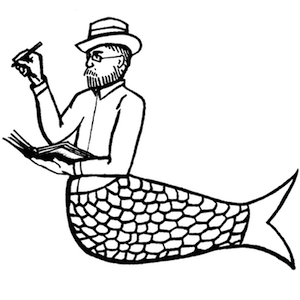 Russell Brand doesn’t vote. Having been goaded about this by Jeremy Paxman on Newsnight in 2013, Brand wrote a book, Revolution, to show that he’s both right and in earnest. Many people are angered by others not voting, it’s a shibboleth of sorts, but Brand’s position seems reasonable to me; there are many causes for indignant scepticism in public life and much of it is a sham. I don’t share his seeming surprise, though, that wealth buys influence and that rich and powerful people generally want to protect and expand their wealth and power. You’d think someone on the threshold of middle-age (he’s 39) would have noticed a little earlier. This is what George Orwell published in 1941, when he was 38.
Russell Brand doesn’t vote. Having been goaded about this by Jeremy Paxman on Newsnight in 2013, Brand wrote a book, Revolution, to show that he’s both right and in earnest. Many people are angered by others not voting, it’s a shibboleth of sorts, but Brand’s position seems reasonable to me; there are many causes for indignant scepticism in public life and much of it is a sham. I don’t share his seeming surprise, though, that wealth buys influence and that rich and powerful people generally want to protect and expand their wealth and power. You’d think someone on the threshold of middle-age (he’s 39) would have noticed a little earlier. This is what George Orwell published in 1941, when he was 38.
In England such concepts as justice, liberty and objective truth are still believed in. They may be illusions, but they are very powerful illusions. The belief in them influences conduct, national life is different because of them. In proof of which, look about you. Where are the rubber truncheons, where is the castor oil? The sword is still in the scabbard, and while it stays there corruption cannot go beyond a certain point. The English electoral system, for instance, is an all-but open fraud. In a dozen obvious ways it is gerrymandered in the interest of the moneyed class. But until some deep change has occurred in the public mind, it cannot become completely corrupt. You do not arrive at the polling booth to find men with revolvers telling you which way to vote, nor are the votes miscounted, nor is there any direct bribery. Even hypocrisy is a powerful safeguard. The hanging judge, that evil old man in scarlet robe and horsehair wig, whom nothing short of dynamite will ever teach what century he is living in, but who will at any rate interpret the law according to the books and will in no circumstances take a money bribe, is one of the symbolic figures of England. He is a symbol of the strange mixture of reality and illusion, democracy and privilege, humbug and decency, the subtle network of compromises, by which the nation keeps itself in its familiar shape.
When this was published the Nazi–Soviet pact was still in force and it was hard to see a future not dominated by malign tyranny of one sort or another. This wasn’t ISIS at a safe enough distance to be sympathised with; Orwell opened his essay ‘As I write, highly civilised human beings are flying overhead, trying to kill me.’ There’s no rage, hate or suspension of critical faculties and his essay is a model of writing about the world as it is while having a strong view about how it ought to be. It’s not a denial of wrongs and it’s not a call to revolution.
Orwell, as you probably know, was an old Etonian (real name: Eric Arthur Blair) who rejected much of his privileged inheritance to investigate and campaign against poverty. He set out to experience for himself what it was like to be poor, living in London’s East End and as a tramp for periods. Sometimes his reputation seems overblown and he was neither infallible nor saintly, but it’s hard to doubt his integrity and the coherence of his moral and intellectual positions, while his opinions were almost always interesting and illuminating.
Then there’s Russell Brand. For what it’s worth, I think he is sincere, but it’s not enough to be sincere, you must have something to say, otherwise it’s just vanity publishing. He says he’s prepared to die for his beliefs, but why would anyone kill him on their account? They won’t be trembling in the boardrooms, parliaments and palaces as his words ring out: ‘The spiritual Revolution, the Revolution we are about to realise, will be fast because the organisms are in place; all that needs to shift is consciousness, and that moves rapidly.’
Oh aye?


Very interesting comparison, Paul. I’m afraid I’m not so generous towards Mr Brand as you. It seems to me that young people, who are most likely to follow him, are suffering the worst of our current malaise and need to be encouraged to vote. The agenda is skewed towards those of us who are further into middle age than Brand – or older- and will remain so as long as politicians court us
Point taken, though I wonder how much real influence he will have on voting. I also wonder how much his book will actually be read. An ephemeral marketing and commercial triumph, I’d guess.